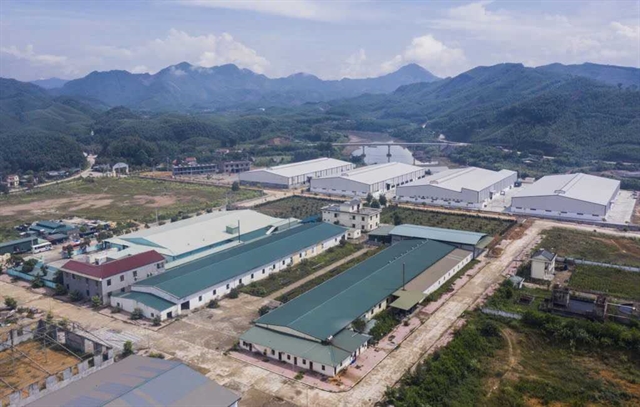.jpg)
.jpg)
Readers suggest education, government’s stronger messages and fines to deal with public property disrespect
Last week, Việt Nam News asked its readers about public property protection in Việt Nam. Here are some of the answers:
It’s about respect and common decency. Most people who “use” Hà Nội, yes I said “use”, don’t come from Hà Nội. They come from various rural towns and therefore don’t care much about the city. It is only a means to an end. You can see the reverse of this when you visit inner city areas where neighbourhoods actually take pride in their immediate surroundings. They sweep and clean and have a local committee that oversees those areas.
Those who have no real connection to Hà Nội don’t care. Hence the litter thrown around the place, motorbikes driving over median strips and grassy areas. Pavements being used for everything except what they’re designed for. People pissing and shitting in the streets and the list goes on and on. It’s not until people actually take pride in their surroundings that things improve. Home ownership is a huge part of it. Most people in Hà Nội are renting, they are not homeowners and therefore adopt the mentality that someone else will pick up their crap. You can see such a huge difference when you visit rural areas. People in their hometowns don’t treat their own communities with the same distain.
While far less is done about it here, vandalism in Hà Nội is far less severe than in my native county of East Lothian in Scotland. Graffiti is hardly a problem compared to drunk youths smashing phoneboxes and bus shelters and setting fire to play park swings. Usually, vandalism in Hà Nội seems to be the result of apathy and negligence - in Scotland, it’s often the result of active aggression.
It’s the broken window theory in action. Many people litter, which acts as a social cue to others that it’s ok to litter and enact other crimes against the environment. I agree that something needs to be done about it, however the punishments in Singapore are far too punitive. Education in schools, messages from the Government and small fines being enforced are the way to go.
Andrew Burden, Canadian, Hà Nội
I’m not sure if it’s ever a good idea to compare Việt nam with Singapore. You’ll never reach their standard. Few places can match them. They’re effectively just a small city-state.
Việt Nam has many challenges regarding the environment. Your paper last Saturday on page 5 detailed drought in Đắk Lắk killing chickens and cows, while coffee farmers conserve water. Annually, salt water invades Mekong rice cultivation.
It’s enough to make you cry, but that’s also a waste of water! Add polluting oyster farms and multitudes of polluting factories upstream and you face an epidemic, even if you dared ignore global climate change.
Fortunately it’s always possible to organise and create a ‘green space mentality’ and revolution. Start in kindergarten. If you want to ‘graduate’ to grade 1, you must plant a seed, water it all summer bringing it back to school in autumn.
What better way to live in a symbiotic relationship? Everything’s interconnected. White-haired people are too old/too set in their ways to change. Target soon-to-graduate university students and young parents about the wisdom of environmental sustainability.
Personally, I go through dozens of plastic food bags and Styrofoam lunch boxes each month. I stopped riding my bicycle. I am part of the problem.
Get primary schools and universities to adopt parks for regular maintenance and cleaning. Grow public vegetable gardens. Give scholastic credit. Healthy body-healthy mind and beautiful, busy parks.
I agree that many Vietnamese people don’t have appreciation for public property. But as we’re talking about disrespect for public property, loose management and punishment is something that needs to be changed. If some violations do not lead to heavy consequences, people tend to feel free to do what they want.
Many countries impose very heavy fines or even jail time for offenses like littering, trespassing and destruction of public property. So in my opinion, education from school and parents, public service announcements and consequences for offenders are the biggest ways Việt Nam can fix this problem.—VNS
.jpg)



